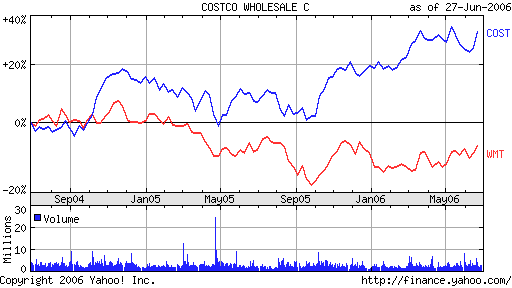I ask Lee to describe the legacy he wants to be remembered for at Wal-Mart. He struggles with the question, falls back on the Sam Walton story, and describes himself as continuing a tradition rather then designing a new purpose for the giant company. Pressing him again for a better answer, he talks about the team
he wants to build and leave behind when he “turns out the lights in the office for the last time.” In effect, he keeps saying it’s not about him.
Pressed again, at this point a little uncomfortably, he talks about being the best they can be, about diversity programs, environmental initiatives, the careers they help their associates build. But nothing that feels like a clear purpose or focused direction.
I take a different tact. I admit that I, like hundreds of other critics, have my own perspective on what Wal-Mart is doing right (not much) and wrong (a lot) when it comes to corporate responsibility. On how to proactively manage the endless bad press they get. How they could go about seizing their potential. Did they want to hear my thoughts? Why not, they answer. Everyone else comes down here and tells us what they think we should do. We’re used to it at this point.
This is written by someone from Seventh Generation. Seventh Generation is a precept of the Great Law of the Haudenosaunee (Six Nations Iroquois Confederacy), which requires that chiefs consider the impact of their decisions on the seventh generation. Read it all here.


